Building History:
THE SHOAH IN ART, MEMORY, AND MYTH
During the Shoah countless human beings were murdered. In Europe the sites of killing are usually also the places of institutionalized memory. With the passing of survivors there is a risk that the events may fall exclusively into the domain of history. At stake is also an understanding of such terms as Kristallnacht, because language filters experience. Since only the survivors know the reality of evil, direct testimony must be emphasized as well as misrepresentation through feature films. The Shoah must also be faced in schools. Educators write of their experience teaching issues related to the Shoah in Austria, Canada, Germany, Switzerland, and the United states. The Shoah is also reflected in the graphic arts, music, film, and theatre. Political issues cannot be avoided. The reconciliation between Israelis and Germans was difficult. Pocking in Bavaria may prefer to forget its past. “Swiss neutrality” is revisited with references to Swiss financial dealings during the war. The selective recollections of the Einsatztruppen perpetrators are analyzed.
This book records a conference, held at Munich and Augsburg, November 8-14, 1997, that brought together educators, academics, artists, and government officials from Austria, Canada, Germany, Israel, Switzerland, and the United States.
The Contributors: Peter Kleinmann, Alain Goldschläger, Naomi Kramer, Rudolf Klinger, Claire Miller, Avraham Primor, Barbara Distel, Jackie Feldman, Ludwig Eiber, Peter M. Daly, Saul Balagura, Jean-Jacques van Vlasselaer, Tibor Egervari, Claude Altermatt, Irving Abella, Anna Rosmus, Ronald Headland, Bruno Winkler, Margaret Wells, Frieda Miller, Miryam Eser Davolio, Hans-Peter Hagedorn.
The Editors: Peter M. Daly is Professor and former Chair of the Department of German Studies at McGill University, Montreal. His previous publications have been on German and English literature of the sixteenth and seventeenth centuries, the European emblem tradition, and contemporary advertising.
Karl Filser is Professor of the Didactics of History at the University of Augsburg. He is a member of several academic boards and institutions including the «Internationale Konferenz für Geschichtsdidaktik». His previous publications have been in the fields of history and pedagogy.
Alain Goldschläger is Professor in the Department of French and founding Director of the Holocaust Literature Research Institute at the University of Western Ontario. His previous publications have been on French literature of the nineteenth and twentieth centuries, discourse analysis, as well as antisemitic and survivor testimonial discourses.
Editors:
- Peter M. Daly is the former Chair of the Department of German Studies at McGill University, Montreal. His previous publications have been on German and English literature of the sixteenth and seventeenth centuries, the European emblem tradition, and contemporary advertising.
- Karl Filser is Professor of the Didactics of History at the University of Augsburg. He is a member of several academic boards and institutions including the Internationale Konferenz fuer Geschichtsdidaktik. His previous publications have been in the fields of history and pedagogy.
- Alain Goldschläger is a Professor in the Department of French and founding Director of the Holocaust Literature Research Institute at the University of Western Ontario. His previous publications have been on French literature of the nineteenth and twentieth centuries, discourse analysis, as well as antisemitic and survivor testimonial discourses.
- Naomi Kramer is Director of the Holocaust Education and Genocide Prevention Foundation. She was the former Education Director of the Montreal Holocaust Memorial Centre.
